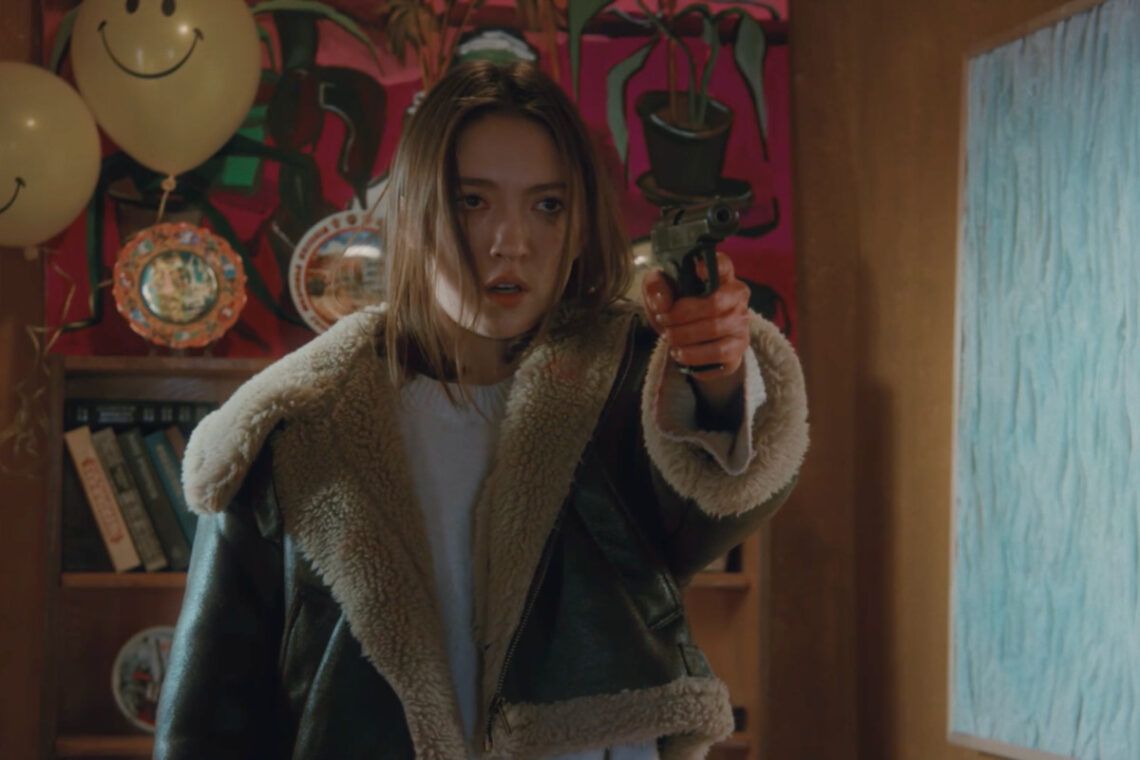A new voice in cinema: ‘Crickets, It’s Your Turn’ challenges societal norms
A fresh take on revenge
In the world of cinema, few films manage to blend genres and deliver a powerful message as effectively as “Crickets, It’s Your Turn”. Directed by Olga Korotko, known for her previous work “Bad Bad Winter,” this film is set to premiere at the Locarno Film Festival. The story revolves around Merey, played by Inzhu Abeu, who lives in Almaty, Kazakhstan. Her life takes a dramatic turn when she meets Nurlan, portrayed by Ayan Batyrbek, and is introduced to his friends. Despite an initial rocky encounter, Merey agrees to attend Nurlan’s birthday party in the mountains, setting the stage for a series of unexpected events.
Watch the trailer for “Crickets, It’s Your Turn”
Unpacking the film’s deeper message
Korotko’s film is not just a simple revenge tale. It delves into the broader societal issues rooted in patriarchy and social Darwinism. The director explains that patriarchy is merely a symptom of a worldview that values strength, domination, and toxic competition. This perspective, she argues, is pervasive and not confined to Kazakhstan alone.
“Patriarchy is a product of this worldview, and I wanted to highlight its characteristics, almost turning them into a joke. The keyword is ’almost’ because this joke is not funny. There are real victims who suffer, and the consequences of such a perspective can be tragic.”
The film’s title, “Crickets, It’s Your Turn,” is a phrase used when someone makes a joke that falls flat, symbolizing the societal need for change and a redefinition of success.
Blending genres and breaking boundaries
Korotko’s approach to filmmaking is unique, as she seamlessly blends drama, comedy, thriller, and theatrical elements. This fluidity serves as a reminder that while the scenes may be part of Merey’s imagination, their roots are deeply entrenched in real life.
“Her method of resistance is to mock the situations, using theatrical fantasies to push them into a realm of absurdity and humor. But Merey also learns to manifest her protest through real actions and, most importantly, through her art. She wields a camera, traditionally an instrument of objectification, to capture the soul, depth, and personality of the most vulnerable women in society: call girls.”
In a pivotal scene, a group of prostitutes hired for the party ends up offering each other support, creating a moment of genuine human connection.
“The moment [these women] step out of this environment and are alone together, they become their true selves. It’s a world of mutual support and sincerity, where it’s safe to be vulnerable because there’s no risk of being ‘devoured’ by someone higher up in the food chain.”
A Kazakh twist on a familiar theme
The film offers a Kazakh twist on the themes explored in “Promising Young Woman.” Korotko references a real-life incident involving a powerful official who brutally beat his wife, leading to her death. This tragic event is not isolated, highlighting the urgent need to address such issues.
“We all know that violence is wrong; addressing this issue emotionally wouldn’t bring any new revelations. I wanted to create a film where we can adopt the position of an observer. Empathize with the protagonist, but not become so consumed by emotion that we lose the ability to reflect.”
Challenging the ‘survival of the fittest’ mentality
Merey, and by extension Korotko, questions whether the world should continue to oscillate around the concept of “the survival of the fittest.” The director consciously avoids the typical “revenge girl” narrative, opting instead to explore a different path.
“I wanted to explore the idea that those of us who adhere to the ‘philosophy of the peacock’ – a worldview where the primary mission is to bring beauty into the world – will inevitably lose if we try to battle adherents of social Darwinism on their terms, using their tools of power and domination.”
Korotko believes that it is impossible to defeat those who adhere to the philosophy of power through sheer force. Instead, she advocates for a different path, one that may not be quick or immediately obvious but promises deep and significant change.
A collaborative effort
“Crickets, It’s Your Turn” is produced by Korotko and Etienne de Ricaud for Seven Rivers and Caractères Productions, respectively. The film’s unique blend of intense, personal storytelling with broader social commentary makes it a compelling watch.
“The film explores the chilling consequences of a seemingly innocent night that devolves into a dark game of survival. In an era where audiences are increasingly drawn to narratives that challenge the status quo and provoke thought, I believe a film like this, with its gripping story and powerful message, is exactly what people are waiting for.”
In a world where cinema often mirrors society, “Crickets, It’s Your Turn” stands out as a poignant reminder of the need for change and the power of art to inspire it.

 Italian
Italian







